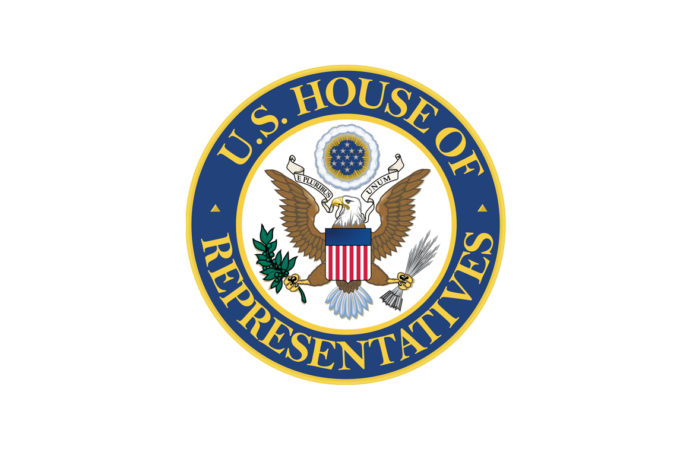WASHINGTON, D.C. – The U.S. House of Representatives has passed critical funding championed by U.S. Rep. Derek Kilmer (WA-06) to support tribal relocation efforts in Western Washington. The 12-bill government funding package, which passed the House with bipartisan support, included $1,650,000 in federal funding for the Hoh Tribe’s relocation development project, $1,479,355 in federal funding for the Quileute Tribe’s Move to Higher Ground water system improvement project, and $500,000 for the Quinault Indian Nation’s relocation development project.
The funding for the Hoh Tribe aims to help the tribe build out essential physical and electrical infrastructure to each commercial, governmental, and residential lot in the Upper Highlands. It also aims to connect water and sewer lines to the existing reservation system as the tribe relocates to escape the imminent dangers of coastal flooding.
The funding for the Quileute Tribe aims to help the tribe finish the development of a reliable water source as they seek to relocate critical community facilities and future housing to the safety of lands above the reach of tsunami waves and flood waters.
The funding for the Quinault Indian Nation aims to help the tribe build out and develop infrastructure for the Taholah Village Relocation project – a neighborhood project above the tsunami zone expected to serve approximately 70 families. The infrastructure would help the tribe build streets, sewer, water, and storm water, as well as power utilities. The infrastructure would also serve a future school site and water tank site.
The legislation is expected to be considered by the U.S. Senate and signed into law by President Biden in the coming days.
“Climate change and rising sea levels are threatening coastal communities across our region – including the homelands of several of our region’s tribes,” said Rep. Kilmer. “The federal government has an obligation to fulfill its trust and treaty responsibilities and to make sure that people aren’t put at risk. It’s a big deal that this funding for the Quinault Indian Nation, the Quileute Tribe, and the Hoh Tribe, has passed the House. I’ll keep pushing to ensure these tribal communities get the support they need as they seek to move to higher ground and keep their people out of harm’s way.”
“We are appreciative of Representative Kilmer’s continued support of our urgent need to ‘Move to Higher Ground’ and making the safety of the Quileute people and our neighbors in his district a priority,” said Quileute Tribal Council Chairman Douglas Woodruff Jr.
“The Hoh Tribe extends our deepest thanks to Congressman Kilmer and his dedicated staff for their efforts to fund this important step in our relocation effort,” said Hoh Tribal Chairwoman Lisa Martinez. “Climate change is having a significant impact on the safety and well-being of coastal tribal communities, and Hoh has been working towards relocating to safe, higher ground since the passage of the Hoh Safe Homeland Act in 2010. This funding will move us one step further towards our goal of creating a safe and resilient community for Hoh tribal members.”
“Since time immemorial the Quinault people have lived and thrived in the Taholah Village, which is along the Quinault River and the Pacific Ocean,” said Guy Capoeman, President of the Quinault Indian Nation. “However, because of the threat of increased storm surge, continued riverine flooding due to climate change and threat from a tsunami, the Quinault Indian Nation has made the difficult decision to relocate the Taholah Village to higher ground for the safety of our citizens. The funding included in the Fiscal Year 2022 Omnibus Appropriations bill for this project will help ensure the relocation process continues in a timely and safe manner. I want to thank Congressman Derek Kilmer for ensuring the funding for this important project was included in the final FY 2022 omnibus Appropriations bill.”
Rep. Kilmer led the effort to secure funding for all three projects through the House Appropriations Committee’s Community Project Funding process.
The Hoh Tribe’s culture and community are deeply connected to the Hoh River and their ancestral homelands. Since the passage of the Hoh Indian Tribe Safe Homelands Act in 2010, the tribe has been working to relocate to the higher ground that the Act secured to ensure public safety and community preservation in the face of the devastating impacts of climate change. Relocating housing and essential government operations to higher ground will ensure the continuation of the Hoh people for generations to come. This funding will help the tribe construct the utilities and infrastructure necessary for relocation.
The Quileute Tribe in La Push, WA, trace their ancestry to the Northwest Coast. In 2012, President Obama signed legislation returning hundreds of acres of Olympic National Park land to the tribe. This legislation provides lineage protection by allowing the tribe to move its people to higher ground, protecting tribal members from tsunami threats and enabling them to continue to preserve their culture, their heritage, and their livelihood.
The Quinault have lived and thrived on the Olympic Peninsula, and their cultural history is rich with heritage as they are among the small number of Americans who can walk the same beaches, paddle the same waters, and hunt the same lands their ancestors did centuries ago. The Quinault Indian Nation has had models prepared by the Washington Department of Natural Resources that show a potential of tsunami inundation of 40-50 feet in depth in most of the Lower Village of Taholah, well above the elevation of the tallest building in the village. A tsunami event at the Village of Taholah would be catastrophic for the tribe, including a significant loss of life and the destruction of infrastructure, which would compromise Quinault Indian Nation government operations indefinitely. Approximately 650 residents live within the tsunami zone in the Taholah Village and important Quinault social and cultural institutions are located in the tsunami inundation zone and flood prone area. In 2012, the Quinault Indian Nation determined through multiple public processes, including a General Council resolution (a vote taken by the entire tribe), that enabling the movement of residents, businesses, and institutions from the lower village of Taholah to a new Upper Village Relocation Area was the only solution to the threats posed by the effects of climate change and rising sea levels.















































